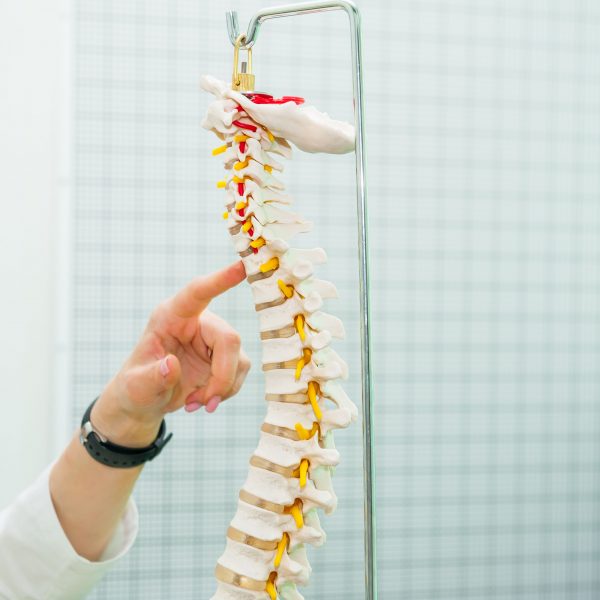- Make sure to communicate clearly with your employer regarding any difficulties you face due to your disability.
- Use tools like scheduling apps and video conferencing better to manage the balance between work and personal life.
- To maintain good health and productivity, prioritize rest, self-care, and stress management.
- Utilize resources already available, such as support groups and local government programs.
For many disabled people, the complex work-life balance challenges can be daunting. With a seemingly never-ending list of demands from both work and home life, it can seem almost impossible to find a way to balance everything.
Fortunately, there are some practical steps that you can take to make navigating these complexities easier. By following these tips, you can navigate the unique challenges of being a disabled worker in today’s world with ease and confidence.
Set manageable goals and strive to meet them.
Setting manageable goals and striving to meet them is an important part of balancing work and life. Here are some tips on what you can do:
Communicate with your employer.

Effective communication with employers is crucial to navigating work as a disabled person. It can be challenging to balance the complexities of managing a disability while simultaneously working, but communicating these challenges appropriately can make all the difference. It is important to approach your employer with a solution-oriented mindset and provide specific examples of how your disability may affect your work to ensure a productive and informative conversation.
This can involve requesting accommodations or modifications to your role or simply seeking clarity or flexibility in the organization of your schedule. Clear communication can lead to positive changes for the employee and the employer, creating an inclusive work environment that values all its members’ unique experiences and challenges.
Take advantage of technology.
In a world that heavily depends on technology, disabled individuals can utilize various tools to manage their work-life balance effectively. Scheduling apps and video conferencing tools have become popular among professionals in recent years to help them stay organized and productive.
These tools can be especially helpful for disabled individuals who must balance their work demands with their personal life needs. For instance, scheduling apps can help them keep track of their daily tasks, deadlines, and appointments.
Video conferencing tools can allow them to stay connected with colleagues while working remotely. Thus, using the right technology, individuals with disabilities can achieve a better work-life balance and improve their overall well-being.
Prioritize rest and self-care.
Prioritizing rest and self-care is essential when navigating the complexities of life as a disabled person. Taking breaks throughout the day and ensuring enough sleep at night to maintain good health and productivity is imperative. Disabled individuals can quickly become overwhelmed and experience burnout if they neglect their self-care routine.
By prioritizing rest and self-care, they can significantly improve their overall well-being. Taking breaks throughout the day can help them refresh their minds and avoid fatigue, making them more productive when they return to their tasks.
Additionally, proper sleep hygiene is essential for optimal health and performance. Adequate sleep helps reduce stress levels, boost immune function, and improve cognitive function. Prioritizing rest and self-care is vital for individuals with disabilities to maintain a healthy work-life balance and improve their quality of life.
Find ways to reduce stress regularly.
Reducing stress regularly is crucial for individuals with disabilities. Engaging in leisure activities that bring joy and spending time with loved ones is one of the best ways to relieve stress. Reducing stress can improve health and mental well-being, essential for individuals with disabilities.
Not only can stress affect physical and mental health, but it can also worsen one’s disability, limiting their ability to enjoy life. Therefore, it is necessary to expose oneself to activities that bring happiness and joy, making it easier to navigate the complexities that come with having a disability. People with disabilities who prioritize stress management techniques often report an improvement in their overall quality of life.
Make use of available resources.
For individuals living with disabilities, navigating daily life can often present obstacles that others may overlook. However, there are resources available to help alleviate some of these challenges. One such resource is support groups specifically tailored to people with disabilities. These groups allow individuals to connect, share experiences, and offer mutual support.
Additionally, local government initiatives designed to provide accessible housing options can greatly enhance the day-to-day living situations of people with disabilities. By taking advantage of these resources, individuals can better navigate their unique challenges and lead fulfilling lives. Those with disabilities need to know that they are not alone and that resources are available to help them achieve success and fulfillment.
Strive to live independently.
Living independently as a disabled person requires much effort and proper planning. It involves taking charge of one’s life, making decisions, and having the right support network. It is vital to strive for independence to lead a fulfilling life and overcome the complexities of work-life balance.
Consulting reputable NDIS support services can be an excellent starting point for anyone







